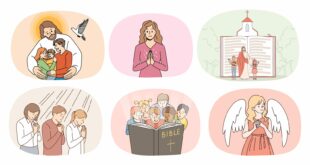We hear a lot about religious expression in our public schools. There is much confusion about it, not on the part of students but with faculty and administrators. In short, many of them need to do some homework. In this article I am going to cite two sources that will lay this issue to rest.
To begin with, each and every student has a First Amendment right to free religious expression. It is from this point on that the confusion begins. Story after story surfaces about how unlawful restrictions are being put upon students, and how members of a school faculty or administration are overstepping their legal parameters. Prayer and Bible reading, clubs, display of religious symbols, or passing out religious literature is legal within certain boundaries.
Here are several guidelines taken from two sources: “A Parent Guide to Religion in the Public Schools”, published by The National Congress of Parents and Teachers and The Freedom Forum First Amendment Center, and “Public Schools and Religious Communities: A First Amendment Guide.” Copies of both of these publications can be obtained by writing to First Amendment Center, 1207 18th Avenue South, Nashville, TN 37212, or by calling 615-321-9588. Internet addresses are: www.fac.org and www.freedomforum.org.
Following is a summary of what these publications state.
1. Students have a right to pray, read the Bible, discuss their faith, invite others to religious groups, display or wear religious symbols, and to express their beliefs in a classroom discussion, art activity, or written assignment.
2. Students can pray alone or in groups as long as it does not cause disruption or infringe on the rights of others.
3. Students may pass out religious literature with certain conditions of time and place agreed to by the administration.
4. Notice the emphasis on what the students can do. The administration or faculty cannot be involved in any way, either through participation, promotion, or organization. If they are they have gone beyond legal boundaries.
5. A moment of silence may be led by school officials provided it does not promote prayer over other types of quietness.
6. There are situations involving coaches who have come under fire for participating in religious activities or expression with their teams. Even though in some instances, it has been reported that no parents objected, because they are faculty, in my opinion based upon the above guidelines, this is probably a questionable practice.
7. Graduation ceremonies are a different story because here you have everyone present with no choice to pick and choose what one desires to be exposed to. It would appear to be a gray area. Although students still have a constitutional right to express their religious views or activities, the legal bounds are not clearly marked as they are in the previous points. It might be wise in such instances to seek legal counsel and to seek a consensus of all involved. That does not mean, however, that students would be prohibited from expressing their First Amendment rights.
Students know their rights. The problem is that some administrators and faculty are ignorant of the legal parameters. The result is that organizations like the Freedom From Religion Foundation and the American Civil Liberties Union become involved. The parents, students, administrators, faculty, and school boards would all be able to work together without outside intervention. Maybe, also, it would be a good idea to make a class in the legality of religious expression a requirement for teaching or administrative certification.
 The Bottom Line, Ministries Christian News, Articles, & Poetry
The Bottom Line, Ministries Christian News, Articles, & Poetry 




